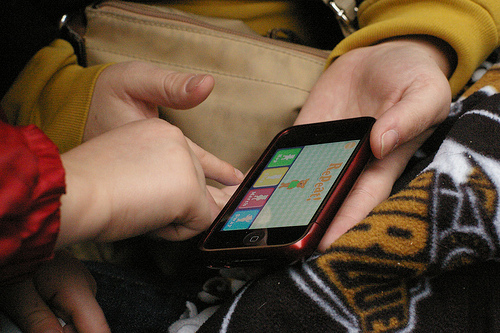Parents shouldn't feel guilty about letting their kids play games on their mobile phones -- especially if they're educational ones. That's one of the main conclusions in the recent study released by the Joan Ganz Cooney Center, "Learning, Is There an App for That?"
The report uses information from three quantitative and observational studies conducted by the Center in conjunction with PBS Kids, Sesame Workshop, Hotspex Survey Research and Rockman, to document for the first time the design, development and research issues related to the use of educational apps for young children's (preschool and primary age) learning.
Most parents know to moderate the amount of time kids spend with the gadgets, and with the help of these kinds of studies, can readily find out which have protein and which are just empty calories.
The best learning apps have the following attributes:
1) They're interactive. Touchscreens beg for touching.


